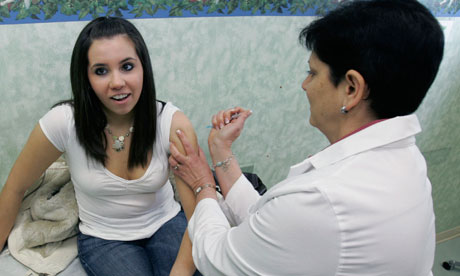
An Army doctor has come up with a vaccine he thinks will prevent cancer, Army.mil reported.
Col. George Peoples – chief of surgical oncology at the San Antonio Military Medical Center – said the drug NeuVax has begun phase III clinical trials and could eventually lead to FDA approval.
"People who are in my field approach this by saying, yes there are ways to treat cancer, but why wait and treat, why not try to prevent?” Peoples told Army.mil.
The clinical trial will involve at least 700 breast cancer patients who will each receive one intradermal injection of NeuVax every month for six months. Once the first six months is up, the participants will then receive a booster inoculation every six months afterwards.
The goal: Disease-free survival for participants at three years.
Peoples is the director for a cancer vaccine development program that he has been working on since the 90s. When he is not trying to find a cure for cancer, he is dispatched throughout the world to provide his surgical expertise for the military.
This current vaccine – which utilizes the E75 peptide – is the result of nearly 20 years of research by Peoples and others. Peoples said it parallels the development of the breast cancer drug Herceptin, which targets a protein that is commonly over-expressed in breast cancer patients called HER2/neu. However, only 20 percent of breast cancer patients have a sufficient amount of HER2/neu in order for Herceptin to work.
This new vaccine is meant to aid those with breast cancer who have lower levels of HER2/neu expression – about 60 percent of breast cancer patients. The majority of other cancers express some levels of HER2/neu as well.
"Probably the bigger point there is ... if it works, if the vaccine works in that lower level of HER2/neu expression group, then you can go look at other cancers that are not being targeted by Herceptin," Peoples said.
This means that if Peoples’ vaccine works, it could prevent not just breast cancer, but a whole range of various other cancers.